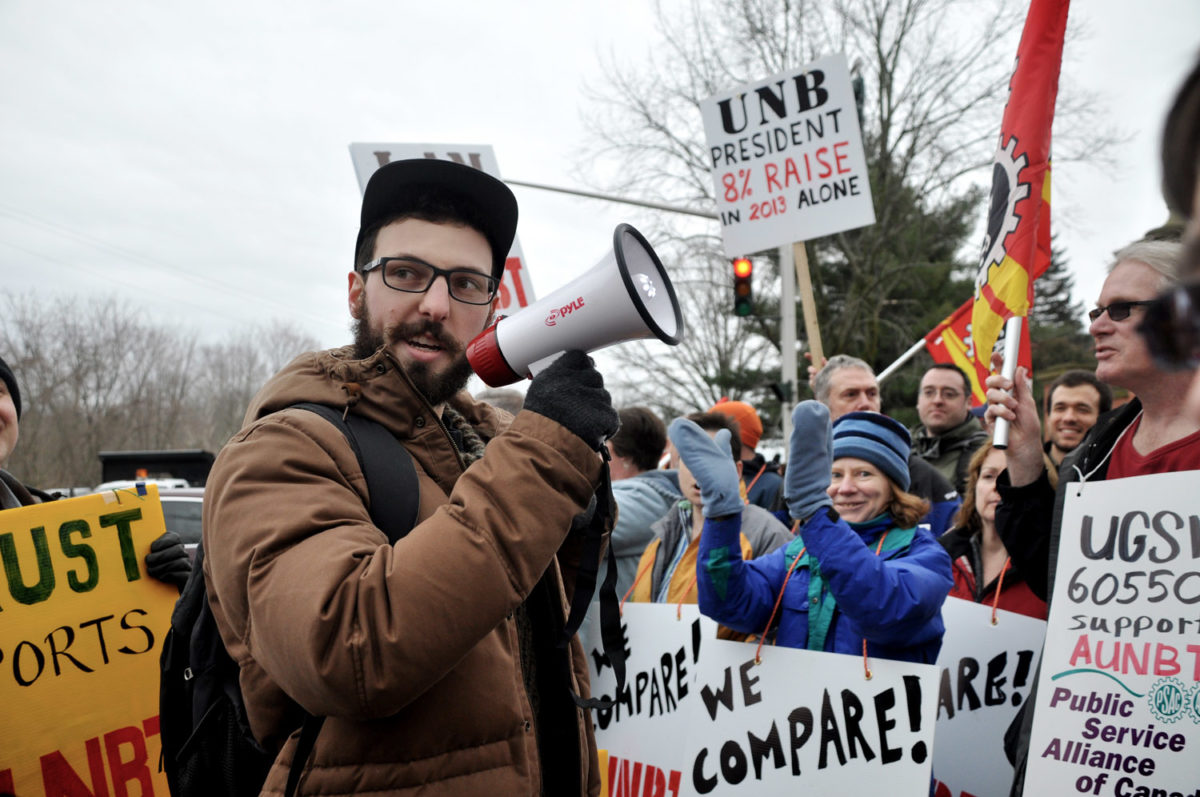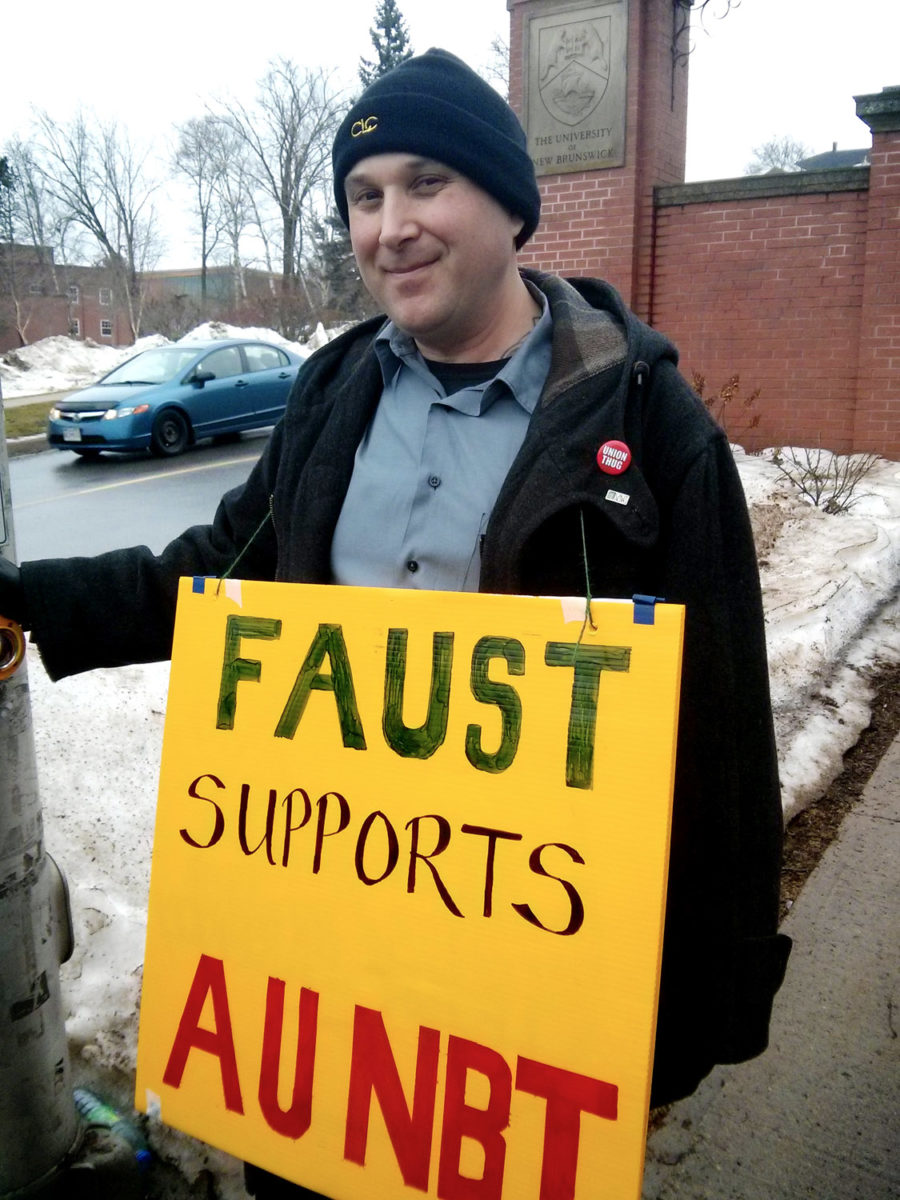
St. Thomas’ unions showed their support at AUNBT’s rally on Thursday.
A crowd of at least 150 people surrounded UNB’s gates to show solidarity in AUNBT’s lockout. Several labour unions joined in the picketing, including St. Thomas’ own FAUST.
The crowd was chanting “save UNB” and several people passed a megaphone around to offer “solidarity greetings.”
“We can’t let ourselves be fractured,” said Miriam Jones, president of AUNBT. “We have to fight the management.”
Robin Vose, vice-president of the Canadian Association of University Teachers and St. Thomas professor, said FAUST and AUNBT have always supported each other. FAUST and AUNBT work together informally through the United Campus Labour Council, which was formed in the wake of STU’s lockout in 2008.
“It promotes getting to know each other, being friendly, understanding each others’ struggles and offering help and support,” said Vose.
Vose said AUNBT came out to support the faculty in 2008 and now FAUST is returning the favour.
“We knew what it felt like to be locked out. We knew what it felt like to be on the picket line and have people sometimes not being supportive to you when you’re walking along,” said Vose.
St. Thomas’ faculty contract is almost finalized. While contracts are always being tweaked, bargaining has gone more smoothly at STU than UNB. Vose said this is a direct result of the lessons learned from 2008.

“I think the union was tested and I think that may have happened at UNB as well. They don’t know if the professors have solidarity and if the professors can stick it out. And I think we taught them that yes, we do,” said Vose. “We will not be bullied and we will not submit.”
However, not every faculty member at STU believes the 2008 lockout was an educational experience. Shaun Narine, a political science professor, said he doesn’t know if anything was learned.
“I know that the last round of negotiations went well and that we have a new contract for the next three years. I hope that this means we learned that these kind of labour disputes are painful and destructive and ultimately should be avoided, if at all possible. But I don’t know that for sure,” Narine wrote in an email.
Narine is also apprehensive of the effects these labour disputes have on emotions. He says in situations like these people tend to become stuck in their rhetoric and ideology.
“As an academic, I am trained, and I believe intellectually obligated, to try see both and all sides of a conflict,” said Narine. “Simply demonizing the ‘other side’ is not a tendency that I think academics should indulge, yet I think that this happens very quickly when people go on the picket lines.”
Vose said AUNBT is fighting for all workers, not just professors. He says this is a conflict that arises in every workplace.
“All workers want to be paid fairly and treated well by their employers.”
Narine says professors shouldn’t consider themselves regular workers, but protesters get mired down in labour conflict rhetoric.
“Universities are not simple ‘capitalist enterprises.’ They are not out to make a profit and university professors cannot reasonably claim to be exploited workers,” he said.
